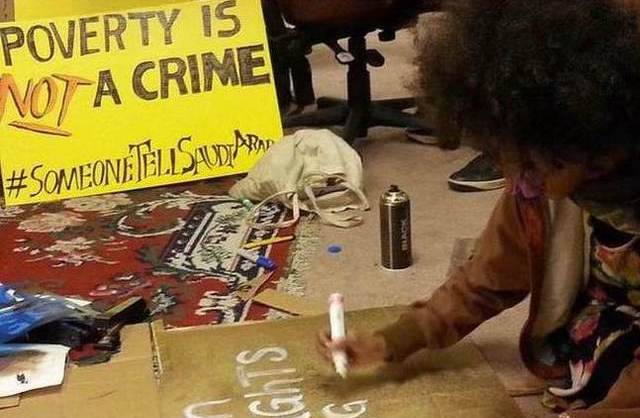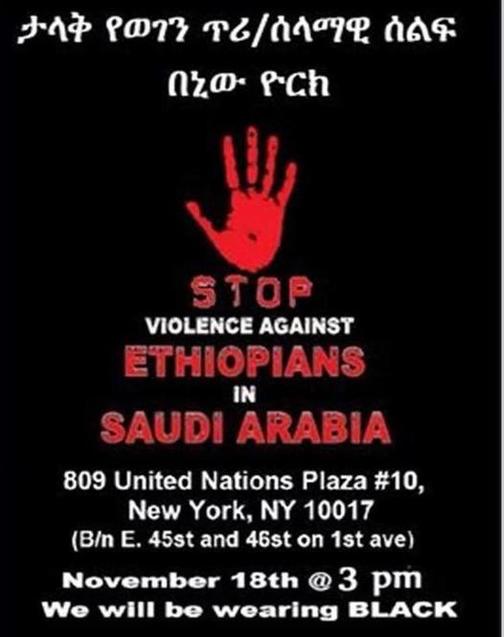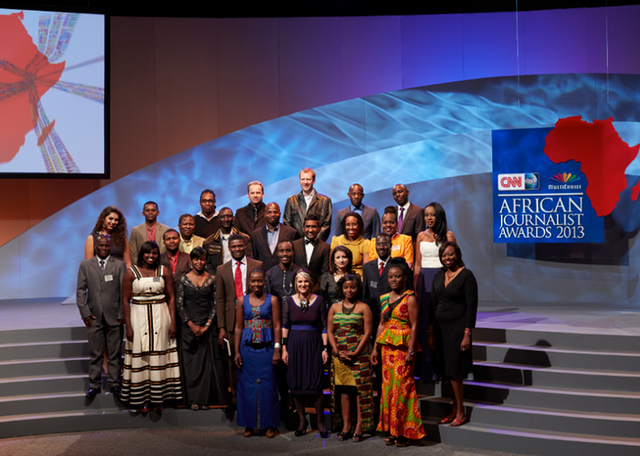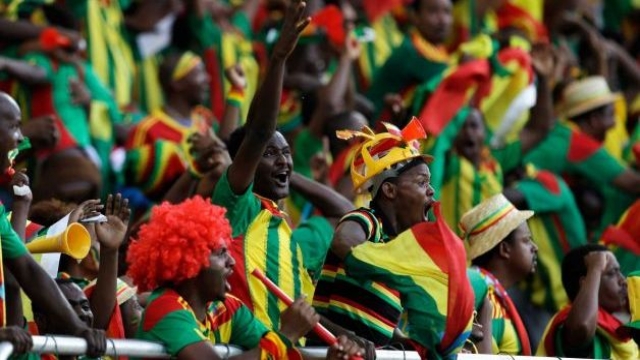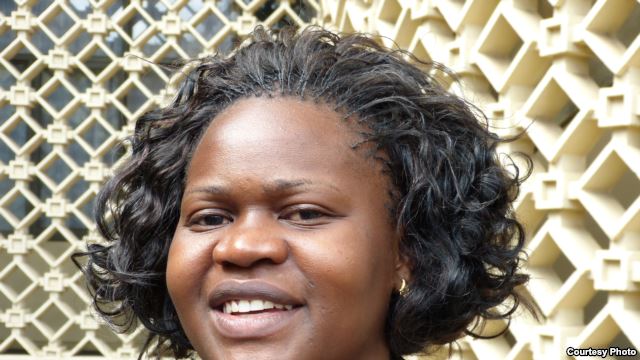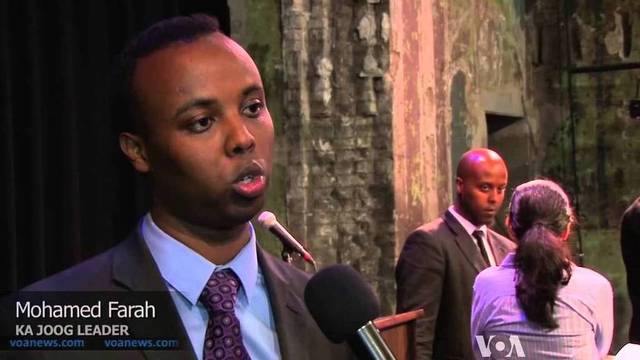Leak investigations and surveillance in post-9/11 America
By Leonard Downie Jr. with reporting by Sara Rafsky
WASHINGTON, D.C. — U.S. President Barack Obama came into office pledging open government, but he has fallen short of his promise. Journalists and transparency advocates say the White House curbs routine disclosure of information and deploys its own media to evade scrutiny by the press. Aggressive prosecution of leakers of classified information and broad electronic surveillance programs deter government sources from speaking to journalists.
In the Obama administration’s Washington, government officials are increasingly afraid to talk to the press. Those suspected of discussing with reporters anything that the government has classified as secret are subject to investigation, including lie-detector tests and scrutiny of their telephone and e-mail records. An “Insider Threat Program” being implemented in every government department requires all federal employees to help prevent unauthorized disclosures of information by monitoring the behavior of their colleagues.
Six government employees, plus two contractors including Edward Snowden, have been subjects of felony criminal prosecutions since 2009 under the 1917 Espionage Act, accused of leaking classified information to the press—compared with a total of three such prosecutions in all previous U.S. administrations. Still more criminal investigations into leaks are under way. Reporters’ phone logs and e-mails were secretly subpoenaed and seized by the Justice Department in two of the investigations, and a Fox News reporter was accused in an affidavit for one of those subpoenas of being “an aider, abettor and/or conspirator” of an indicted leak defendant, exposing him to possible prosecution for doing his job as a journalist. In another leak case, a New York Times reporter has been ordered to testify against a defendant or go to jail.
Compounding the concerns of journalists and the government officials they contact, news stories based on classified documents obtained from Snowden have revealed extensive surveillance of Americans’ telephone and e-mail traffic by the National Security Agency. Numerous Washington-based journalists told me that officials are reluctant to discuss even unclassified information with them because they fear that leak investigations and government surveillance make it more difficult for reporters to protect them as sources. “I worry now about calling somebody because the contact can be found out through a check of phone records or e-mails,” said veteran national security journalist R. Jeffrey Smith of the Center for Public Integrity, an influential nonprofit government accountability news organization in Washington. “It leaves a digital trail that makes it easier for the government to monitor those contacts,” he said.
“I think we have a real problem,” said New York Times national security reporter Scott Shane. “Most people are deterred by those leaks prosecutions. They’re scared to death. There’s a gray zone between classified and unclassified information, and most sources were in that gray zone. Sources are now afraid to enter that gray zone. It’s having a deterrent effect. If we consider aggressive press coverage of government activities being at the core of American democracy, this tips the balance heavily in favor of the government.”
At the same time, the journalists told me, designated administration spokesmen are often unresponsive or hostile to press inquiries, even when reporters have been sent to them by officials who won’t talk on their own. Despite President Barack Obama’s repeated promise that his administration would be the most open and transparent in American history, reporters and government transparency advocates said they are disappointed by its performance in improving access to the information they need.
“This is the most closed, control freak administration I’ve ever covered,” said David E. Sanger, veteran chief Washington correspondent of The New York Times.
The Obama administration has notably used social media, videos, and its own sophisticated websites to provide the public with administration-generated information about its activities, along with considerable government data useful for consumers and businesses. However, with some exceptions, such as putting the White House visitors’ logs on the whitehouse.gov website and selected declassified documents on the new U.S. Intelligence Community website, it discloses too little of the information most needed by the press and public to hold the administration accountable for its policies and actions. “Government should be transparent,” Obama stated on the White House website, as he has repeatedly in presidential directives. “Transparency promotes accountability and provides information for citizens about what their government is doing.”
But his administration’s actions have too often contradicted Obama’s stated intentions. “Instead,” New York Times public editor Margaret Sullivan wrote earlier this year, “it’s turning out to be the administration of unprecedented secrecy and unprecedented attacks on a free press.”
“President Obama had said that default should be disclosure,” Times reporter Shane told me. “The culture they’ve created is not one that favors disclosure.”
White House officials, in discussions with me, strongly objected to such characterizations. They cited statistics showing that Obama gave more interviews to news, entertainment, and digital media in his first four-plus years in office than Presidents George W. Bush and Bill Clinton did in their respective first terms, combined. They pointed to presidential directives to put more government data online, to speed up processing of Freedom of Information Act requests, and to limit the amount of government information classified as secret. And they noted the declassification and public release of information about NSA communications surveillance programs in the wake of Snowden’s leak of voluminous secret documents to The Washington Post and the Guardian.
“The idea that people are shutting up and not leaking to reporters is belied by the facts,” Obama’s press secretary, Jay Carney, told me, pointing in frustration to anonymously sourced media reports that same day about planning for military action against the government of President Bashar al-Assad in Syria.
“We make an effort to communicate about national security issues in on-the-record and background briefings by sanctioned sources,” said deputy White House national security adviser Ben Rhodes. “And we still see investigative reporting from nonsanctioned sources with lots of unclassified information and some sensitive information.”
He cited as an example the administration’s growing, if belated, official openness about its use of drone aircraft to attack suspected terrorists, including declassification of information about strikes in Yemen and Somalia, following revelations about drone attacks in the news media. “If you can be transparent, you can defend the policy,” Rhodes told me. “But then you’re accused of jeopardizing national security. You’re damned if you do and damned if you don’t. There is so much political controversy over everything in Washington. It can be a disincentive.”
The administration’s war on leaks and other efforts to control information are the most aggressive I’ve seen since the Nixon administration, when I was one of the editors involved in The Washington Post’s investigation of Watergate. The 30 experienced Washington journalists at a variety of news organizations whom I interviewed for this report could not remember any precedent.
“There’s no question that sources are looking over their shoulders,” Michael Oreskes, a senior managing editor of The Associated Press, told me months after the government, in an extensive leak investigation, secretly subpoenaed and seized records for telephone lines and switchboards used by more than 100 AP reporters in its Washington bureau and elsewhere. “Sources are more jittery and more standoffish, not just in national security reporting. A lot of skittishness is at the more routine level. The Obama administration has been extremely controlling and extremely resistant to journalistic intervention. There’s a mind-set and approach that holds journalists at a greater distance.”
Washington Post national security reporter Rajiv Chandrasekaran, a member of CPJ’s board of directors, told me that “one of the most pernicious effects is the chilling effect created across government on matters that are less sensitive but certainly in the public interest as a check on government and elected officials. It serves to shield and obscure the business of government from necessary accountability.”
Frank Sesno, a former CNN Washington bureau chief who is now director of the School of Media and Public Affairs at George Washington University, said he thought the combined efforts of the administration were “squeezing the flow of information at several pressure points.” He cited investigations of “leakers and journalists doing business with them” and limitations on “everyday access necessary for the administration to explain itself and be held accountable.”
The Insider Threat Program being implemented throughout the Obama administration to stop leaks—first detailed by the McClatchy newspapers’ Washington bureau in late June—has already “created internal surveillance, heightened a degree of paranoia in government and made people conscious of contacts with the public, advocates, and the press,” said a prominent transparency advocate, Steven Aftergood, director of the Government Secrecy Project at the Federation of American Scientists in Washington. None of these measures is anything like the government controls, censorship, repression, physical danger, and even death that journalists and their sources face daily in many countries throughout the world—from Asia, the Middle East and Africa to Russia, parts of Europe and Latin America, and including nations that have offered asylum from U.S. prosecution to Snowden. But the United States, with its unique constitutional guarantees of free speech and a free press—essential to its tradition of government accountability—is not any other country.
“The investigation and potential indictment of investigative journalists for the crime of doing their jobs well enough to make the government squirm is nothing new,” Suzanne Nossel, executive director of PEN American Center, wrote earlier this year. “It happens all over the world, and is part of what the Obama administration has fought against in championing press and Internet freedom globally. By allowing its own campaign against national security leaks to become grounds for trampling free expression, the administration has put a significant piece of its very own foreign policy and human rights legacy at risk.”
Financial Times correspondent Richard McGregor told me that, after coming to Washington several years ago from a posting in China, he was surprised to find that “covering this White House is pretty miserable in terms of getting anything of substance to report on in what should be a much more open system. If the U.S. starts backsliding, it is not only a bad example for more closed states, but also for other democracies that have been influenced by the U.S.” to make their governments more transparent.
This report will examine all these issues: legal policies of the Obama administration that disrupt relationships between journalists and government sources; the surveillance programs that cast doubt on journalists’ ability to protect those sources; restrictive practices for disclosing information that make it more difficult to hold the government accountable for its actions and decision-making; and manipulative use of administration-controlled media to circumvent scrutiny by the press.
September 11, 2001, is a watershed
Of course, every U.S. administration in modern times has tried, with varying degrees of success, to control its message and manage contacts with the media and the public. “When I’m asked what is the most manipulative and secretive administration I’ve covered, I always say it’s the one in office now,” Bob Schieffer, the veteran CBS television news anchor and chief Washington correspondent, told me. “Every administration learns from the previous administration. They become more secretive and put tighter clamps on information. This administration exercises more control than George W. Bush’s did, and his before that.”
The terrorist attacks on the United States on September 11, 2001, were a watershed. They led to a rapid buildup of what The Washington Post later characterized as a sprawling “Top Secret America” of intelligence and other government agencies, special military forces, and private contractors to combat terrorism. The “black budget” for the 16 U.S. intelligence agencies alone was more than $50 billion for the fiscal year 2013, according to an NSA document Edward Snowden gave to The Post.
Since the 9/11 attacks, “the national security role of the government has increased hugely,” said Harvard Law School professor Jack Goldsmith, a senior national security lawyer in the Pentagon and the Justice Department during the Bush administration. It has amounted to a “gigantic expansion of the secrecy system,” he told me, “both the number of secrets and the numbers of people with access to secrets.”
By 2011, more than 4 million Americans had security clearances for access to classified information of one kind or another, according to a U. S. Intelligence Community report to Congress required by the 2010 Intelligence Authorization Act, and more and more information was being classified as secret. In that year alone, government employees made 92 million decisions to classify information—one measure of what Goldsmith called “massive, massive over-classification.” For example, the 250,000 U.S. State Department cables that Army Pvt. Chelsea Manning (then known as Pvt. Bradley Manning) downloaded and gave to the Wikileaks website included countless previously published newspaper articles that were classified as secret in diplomatic dispatches to Washington.
The Patriot Act, passed by Congress after the 9/11 attacks and since amended and extended in duration, gave the government increased powers to protect national security, including secret investigations of suspected terrorist activity. During the Bush administration, the NSA, working with the Federal Bureau of Investigation, secretly monitored large amounts of telephone calls that flowed through U.S. telecommunications companies and facilities. This electronic surveillance to detect terrorism threats was eventually authorized and expanded by the closed FISA court created by the 1978 Foreign Intelligence Surveillance Act, enabling the NSA to secretly collect, store, and access records of most telephone and Internet traffic in and passing through the United States.
Initially, the American press did not discover these or other secret counterterrorism activities. It also did not appear to be aggressive in challenging President George W. Bush’s rationale for going to war in Iraq, in addition to the continuing military activity in Afghanistan. “The Bush administration was working to sell the wars and covert programs to journalists,” syndicated foreign affairs columnist David Ignatius told me. “Access was a routine matter.”
But the press coverage gradually changed. In 2003, reporter Barton Gellman detailed in The Washington Post how an American task force had been unable to find any evidence of weapons of mass destruction in Iraq after the American invasion. In 2004, CBS television news and New Yorker magazine writer Seymour Hersh separately reported that U.S. soldiers and intelligence agency interrogators had abused and tortured wartime prisoners in Iraq’s Abu Ghraib prison. In 2005, Washington Post reporter Dana Priest revealed that the Central Intelligence Agency had detained and aggressively interrogated terrorism suspects in extralegal “black site” secret prisons outside the U.S. Later that year, New York Times reporters James Risen and Eric Lichtblau first reported about the warrantless intercepts of Americans’ telephone calls in the NSA’s secret electronic surveillance program. In 2006, Risen published a book in which he revealed a failed CIA covert operation to sabotage Iran’s nuclear program.
These kinds of revelations enabled Americans to learn about questionable actions by their government and judge for themselves. But they infuriated Bush administration officials, who tried to persuade news executives to stop or delay such stories, which depended, in part, on confidential government sources of classified information. The Bush administration started intensive investigations to identify the sources for the stories on CIA secret prisons and NSA electronic surveillance and for Risen’s book. By the time Bush left office, no one had been prosecuted, although a CIA officer was fired for unreported contacts with Priest, and several Justice Department investigations were continuing.
The Bush White House and Vice President Dick Cheney did not hesitate to take issue with an increasingly adversarial press publicly and privately, especially as the wars in Iraq and Afghanistan—and the Bush administration itself—became more unpopular. But journalists and news executives, including myself, were still able to engage knowledgeable officials at the highest levels of the administration in productive dialogue, including discussions of sensitive stories about classified national security activities. “The Bush administration had a worse reputation,” Marcus Brauchli, my immediate successor as executive editor of The Washington Post, told me, “but, in practice, it was much more accepting of the role of journalism in national security.”
And not just in national security. Ellen Weiss, Washington bureau chief for E.W. Scripps newspapers and stations, said “the Obama administration is far worse than the Bush administration” in trying to thwart accountability reporting about government agencies. Among several examples she cited, the Environmental Protection Agency “just wouldn’t talk to us” or release records about environmental policy review panels “filled by people with ties to target companies.”
Obama promises transparency
Obama, who during the 2008 campaign had criticized the “excessive secrecy” of the Bush administration, came into the Oval Office promising an unprecedentedly open government. By the end of his first full day there on January 21, 2009, he had issued directives to government agencies to speed up their responses to Freedom of Information Act requests and to establish “Open Government Initiative” websites with information about their activities and the data they collect.
The government websites turned out to be part of a strategy, honed during Obama’s presidential campaign, to use the Internet to dispense to the public large amounts of favorable information and images generated by his administration, while limiting its exposure to probing by the press. Veteran political journalists Jim VandeHei and Mike Allen described the administration’s message machine this way on the news website Politico: “One authentically new technique pioneered by the Obama White House is government creation of content—photos of the president, videos of White House officials, blog posts written by Obama aides—which can then be instantly released to the masses through social media. And they are obsessed with taking advantage of Twitter, Facebook, YouTube and every other social media forum, not just for campaigning, but governing. They are more disciplined about cracking down on staff that leak, or reporters who write things they don’t like.”
A senior White House official told me, “There are new means available to us because of changes in the media, and we’d be guilty of malpractice if we didn’t use them.” The official said that, for example, the White House often communicated brief news announcements on Twitter to the more than 4 million followers of @whitehouse.
“Some of you have said that I’m ignoring the Washington press corps—that we’re too controlling,” Obama jokingly told assembled journalists at the annual Gridiron Dinner in Washington in March. “Well, you know what? You were right. I was wrong, and I want to apologize in a video you can watch exclusively at whitehouse.gov,” one of the administration’s websites.
“There is no access to the daily business in the Oval Office, who the president meets with, who he gets advice from,” said ABC News White House correspondent Ann Compton, who has been covering presidents since Gerald Ford. She said many of Obama’s important meetings with major figures from outside the administration on issues like health care, immigration, or the economy are not even listed on Obama’s public schedule. This makes it more difficult for the news media to inform citizens about how the president makes decisions and who is influencing them.
“In the past,” Compton told me, “we would often be called into the Roosevelt Room at the beginning of meetings to hear the president’s opening remarks and see who’s in the meeting, and then we could talk to some of them outside on the driveway afterward. This president has wiped all that coverage off the map. He’s the least transparent of the seven presidents I’ve covered in terms of how he does his daily business.”
Instead of providing greater access for reporting by knowledgeable members of the press, Compton noted, the Obama White House produces its own short newscast, “West Wing Week,” which it posts on the White House website. “It’s five minutes of their own video and sound from events the press didn’t even know about,” she said.
“When you call the White House press office to ask a question or seek information, they refer us to White House websites,” said Chris Schlemon, Washington producer for Britain’s Channel 4 television news network. “We have to use White House website content, White House videos of the president’s interviews with local television stations and White House photographs of the president.”
The Obama administration is using social media “to end run the news media completely,” Sesno at George Washington University told me. “Open dialogue with the public without filters is good, but if used for propaganda and to avoid contact with journalists, it’s a slippery slope.”
Brushing off such concerns as special pleading from the news media, a senior administration official told me that White House videos of otherwise closed meetings, for example, provide the public with “a net increase in the visibility of these meetings.” Several reporters told me that the White House press office and public affairs officials in many government agencies often don’t respond to their questions and interview requests or are bullying when they do. “In the Obama administration, there is across-the-board hostility to the media,” said veteran Washington correspondent and author Josh Meyer, who reports for the Atlantic Media national news website Quartz. “They don’t return repeated phone calls and e-mails. They feel entitled to and expect supportive media coverage.”
Reporters and editors said they often get calls from the White House complaining about news content about the administration. “Sometimes their levels of sensitivity amaze me—about something on Twitter or a headline on our website,” said Washington Post Managing Editor Kevin Merida.
Obama press secretary Carney, who had covered the White House for Time magazine, minimized such complaints as being part of a “natural tension” in any administration’s relationship with the press. “That’s not new. I was yelled at by people during the Clinton and Bush administrations,” he told me.
“The Obama people will spend an hour with you, off the record, arguing about the premise of the story,” said Josh Gerstein, who covers the White House and its information policies for Politico. “If the story is basically one that they don’t want to come out, they won’t even give you the basic facts.”
Eric Schmitt, national security correspondent of The New York Times, told me: “There’s almost an obligation to control the message the way they did during the campaign. More insidious than the chilling effect of the leaks investigations is the slow roll or stall. People say, ‘I have to get back to you. I have to clear it with public affairs.’”
“They’re so on message,” said Channel 4’s Schlemon. “I thought Bush was on message, but they’ve taken it to a whole new level.”
White House under pressure to stop leaks
As this information-control culture took root after Obama entered the White House in January 2009, his administration also came under growing pressure from U.S. intelligence agencies and congressional intelligence committees to stem what they considered an alarming accumulation of leaks of national security information. According to a New York Times story this summer, Obama’s first director of national intelligence, Dennis C. Blair, noted that during the previous four years 153 national security leaks had been referred by the intelligence agencies in “crime reports” to the Justice Department, but that only 24 had been investigated by the FBI, and no leaker had yet been prosecuted in those investigations.
“According to Mr. Blair,” The Times reported, “the effort got under way after Fox News reported in June 2009 that American intelligence had gleaned word from within North Korea of plans for an imminent nuclear test.” Blair told The Times that he and Attorney General Eric H. Holder Jr. then coordinated a more aggressive approach aimed at producing speedy prosecutions. “We were hoping to get somebody and make people realize that there are consequences to this and it needed to stop,” Blair told The Times. “It was never a conscious decision to bring more of these cases than we ever had,” Matthew Miller, Holder’s spokesman at the time, told me this summer. “It was a combination of things. There were more crime reports from the intelligence agencies than in previous years. There was pressure” from Capitol Hill, where Holder, Blair and other administration officials “were being harangued by both sides: ‘Why aren’t leakers being prosecuted? Why aren’t they being disciplined?’”
“Some strong cases,” inherited from the Bush administration, “were already in process,” Miller said. “And a number of cases popped up that were easier to prosecute” with “electronic evidence,” including telephone and e-mail records of government officials and journalists. “Before, you needed to have the leaker admit it, which doesn’t happen,” he added, “or the reporter to testify about it, which doesn’t happen.”
Leak prosecutions under Obama have been “a kind of slap in the face,” said Smith of the Center for Public Integrity. “It means you have to use extraordinary measures for contacts with officials speaking without authorization.”
Read the rest of the report at CPJ.org.
—
Join the conversation on Twitter and Facebook.
